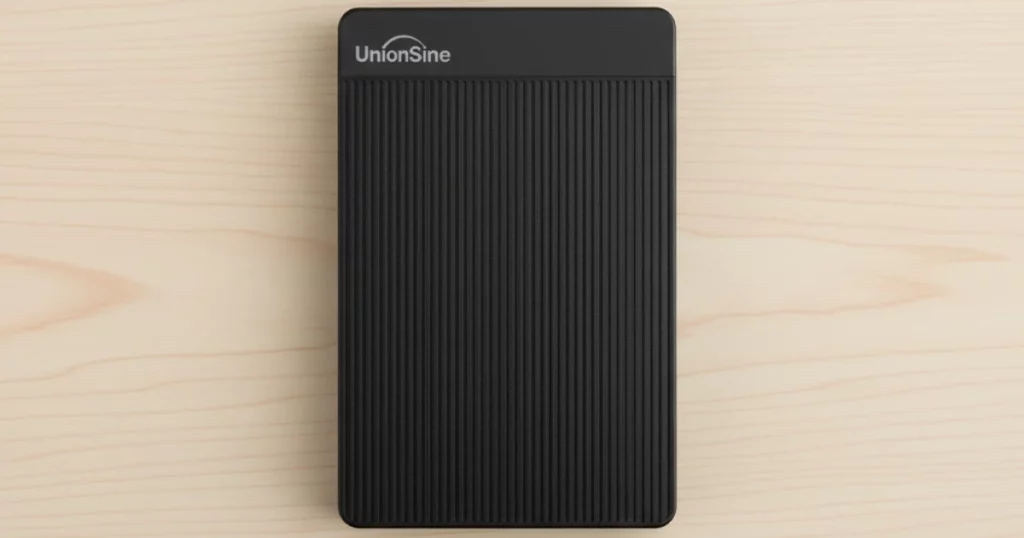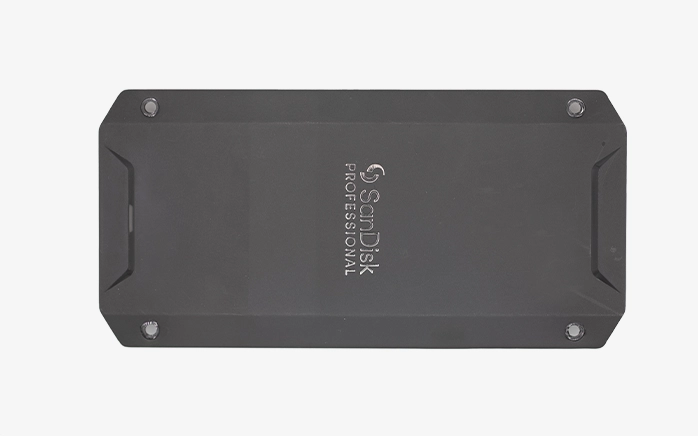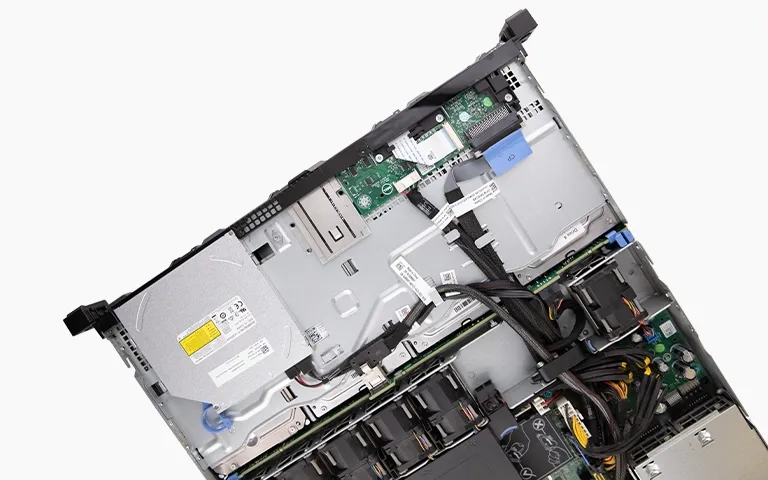Crucial’s X9 Pro SSD is a compact and fast portable drive often chosen by professionals who need high-performance external storage. Designed for both Windows and macOS, these SSDs are frequently used by photographers, videographers, and creative teams to store their most valuable data.
But despite their durability and reliability, no storage device is immune to failure. In this case, we performed a Crucial SSD data recovery, successfully recovering years of creative work from a Crucial X9 Pro 2TB SSD that had suddenly stopped being recognized by the client’s computer.
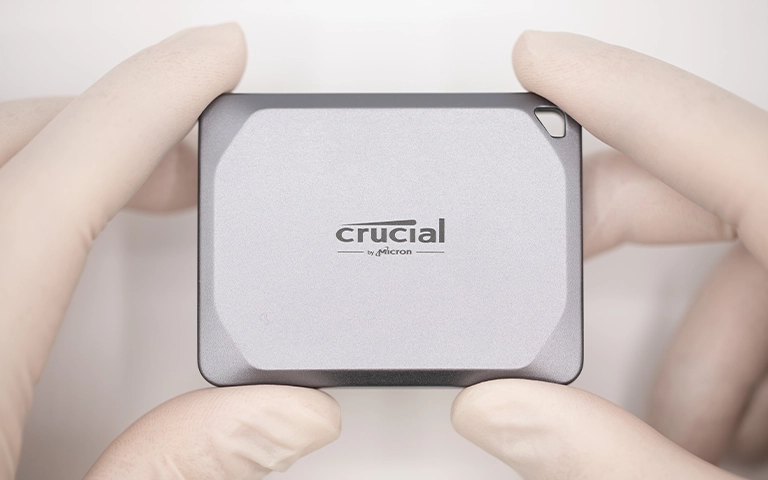
The Situation: Crucial SSD Not Recognized by Windows 11
A professional photographer contacted our team after their Crucial X9 Pro SSD failed to appear in Windows 11 File Explorer. The drive had worked flawlessly for years and was used to store an extensive archive of RAW image files, video projects, and edited deliverables.
The client had previously taken the drive to a local computer repair shop, but no data could be retrieved. Realizing the urgency of the situation and with upcoming deadlines looming, they turned to PITS Global Data Recovery Services for a more advanced SSD data recovery solution.
Initial Diagnostics and Discovery
Once the SSD arrived at our lab, we prioritized the case due to the time-sensitive nature of the data. Our engineering team performed a full diagnostic using precision tools to determine the root cause.
The issue was quickly identified as:
- A failed USB-C port connection on the SSD’s controller board
- No visible damage to the NAND flash chips or PCB
- Power was not consistently reaching the internal memory
This type of port failure is relatively common with portable SSDs that are frequently plugged in and unplugged. Even minor stress on the connector can sever data lines or cause intermittent power delivery, making the drive undetectable by the operating system.
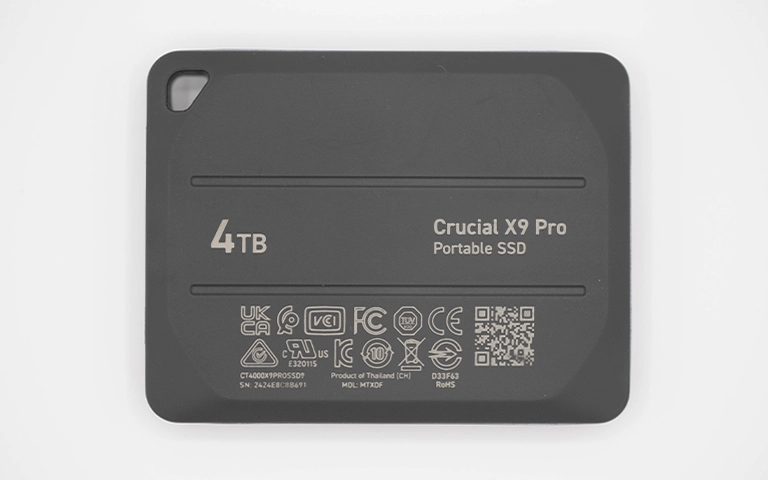
How We Recovered the Data from the Crucial X9 SSD
Once the physical fault was confirmed, our team carefully began the recovery process using industry-leading techniques.
Step 1: Safe Disassembly and Inspection
The drive was disassembled in our electrostatic discharge (ESD)-safe lab environment. Under a microscope, our engineers examined the circuit board and identified the specific fault points on the USB-C interface.
Step 2: Direct Access to the NAND and Controller
To recover the data safely:
- We bypassed the damaged USB port and established a direct connection with the SSD’s internal controller
- Custom wiring and adapter tools were used to emulate the drive’s original interface without modifying the firmware or memory structure
- This allowed us to interface directly with the NAND flash memory while avoiding further physical stress
Get a Free Consultation.
Our recovery experts are ready to assess your device and guide you through the safest path to recovery. Fill out the form to get started.
"*" indicates required fields
Step 3: Imaging the SSD
Once the connection was stable, we created a sector-by-sector image of the drive using professional-grade recovery hardware. This step protects the original drive from any further stress or corruption.
Step 4: File Extraction and Reconstruction
With a verified image available, our engineers extracted:
- RAW photo files (.CR2, .NEF, etc.)
- 4K video files and time-lapses
- Project folders containing Lightroom catalogs, edited PSDs, and backups
All files were preserved with their original directory structure, ensuring the photographer could resume work immediately without re-organizing or searching for missing files.
Step 5: Integrity Checks and Delivery
The final step involved validating every recovered file for completeness. We opened samples of every file type to ensure there was no corruption or partial damage.
Once verified, the recovered data was transferred to a brand-new encrypted external SSD and shipped back to the client with tracking and signature confirmation.
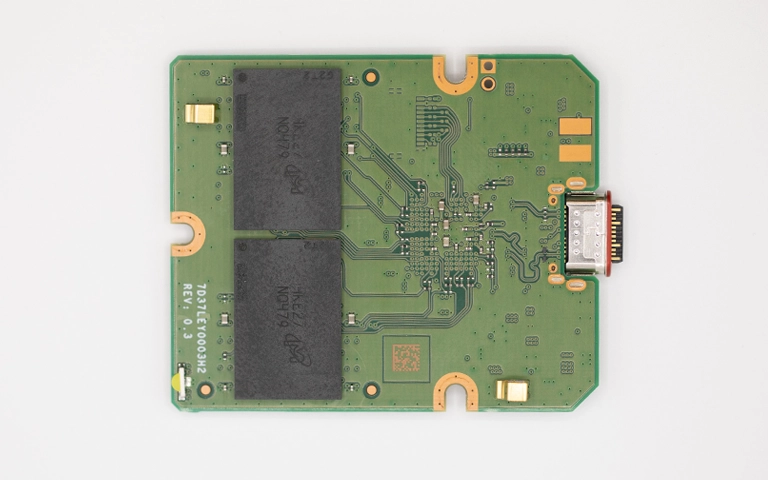
Your Data Security Is Our Priority
Data privacy isn’t optional. It’s our commitment. Our secure recovery process ensures your sensitive information stays protected from start to finish.
HIPAA Compliant
GDPR Compliant
Secure Facility
NDA Available
Trust in certified security. Start your recovery today! Call Now: 888.611.0737
Why SSD Port Failures Require Professional Recovery
SSD recovery from devices like the Crucial X9 Pro can be deceptively complex. While the storage medium itself may be intact, port failures, controller instability, or PCB-level faults can make it impossible to access data using standard tools.
End-users should avoid:
- Trying to re-solder broken ports
- Forcing different cables into the connector
- Using recovery software when the drive is not recognized at all
These actions can cause permanent damage to the memory chips or corrupt the file system beyond repair.
How to Prevent Data Loss on Portable SSDs
While SSDs offer greater shock resistance than HDDs, they’re still vulnerable to physical wear and electronic failure.
Best practices include:
- Avoid frequent unplugging or using the drive while moving
- Use short, high-quality USB-C cables to reduce tension on the port
- Regularly back up data to a second location (cloud or local)
- Eject the drive safely from the operating system before disconnecting
- Avoid exposing the drive to moisture or extreme temperatures
Proactive care can extend the life of your SSD and reduce the risk of emergency recovery situations.
Conclusion
Our successful recovery of critical files from a 2TB Crucial X9 Pro SSD highlights the importance of expert intervention when dealing with device-level failures. What appeared to be a total loss for the client turned into a fully recovered archive of creative work all delivered in time for their next project.
At PITS Global Data Recovery Services, we specialize in handling advanced SSD cases that others cannot. Whether your drive has suffered physical damage, interface failure, or is simply no longer recognized, our team is ready to help.
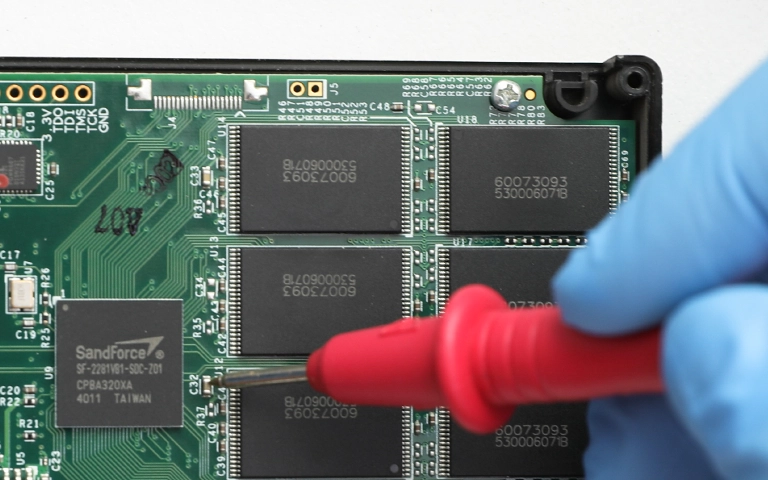
What Our Customers Are Saying
Call us at 888.611.0737
Visit pitsdatarecovery.com
Request a free shipping label to send your drive to our certified lab
Don't Let Data Loss Ruin Your Business
Minimize business disruption. We retrieve lost data fast, so you can focus on what matters.

